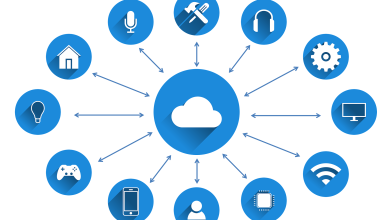Zip file format advantages when working remotely

Remote working or the work from home module has opened up a world of possibilities, along with challenges. After the outbreak of the COVID-19 virus, businesses have been busy restructuring to adapt to the new normal conditions.
If you are a remote worker and need to share copious amounts of files and documents with your team members, you already know the importance of file compression. Here’s what you need to know about the ZIP file format and its advantages for those who still haven’t made the most out of compressing files.
Table of Contents
What is a ZIP file, and how is it different from RAR?
File compression is a crucial part of the digital and remote workspace. ZIP files utilize compression to send lots of data at faster speeds, and that’s why businesses use ZIP as an integral tool.
ZIP is a file format used to compress one or more files together into one location. It reduces the file size to store or transport the files easily. Recipients can extract or unzip the files to use them in their original format.
On computers, ZIP files work as a standard folder, and they contain files together in a single place. Since the content is compressed, the amount of data used by your computer to store those files is significantly reduced. Furthermore, ZIP files can also be described as an archive. You can identify these files by looking at their extensions, .zip, or .ZIP.
When you’re reading about the ZIP format, you’re bound to come across RAR. RAR is an archiving format using a high compression ratio for fewer megabytes. While the size is smaller, the processing time is longer. Also, you need to install software to use the files. So, for convenience, it would be best to know how to change .rar to .zip and enhance your productivity.
When are ZIP files used for work?
Zipped files have myriad uses in a business setting, regardless of whether you are working from the office or home. Say, for instance, you need to send your colleague or client a big batch of files. You cannot send them all together as an email attachment because you’ll get an error. In Gmail, email attachments cannot be more than 25MB. So, instead of sending each file in separate emails, you can compress all the files. Zip them up and send them to your colleague or client. The file can be downloaded and unzipped by the recipient.
Advantages of using ZIP files when working remotely
Working remotely is already challenging as it is. You need to set up a home-office environment and ensure that your tasks are completed smoothly. Global talent hiring is the best procedure to hire a remote worker with RGT. You cannot delay in sending files, or your team members will suffer because of it. That’s why ZIP files are increasingly being used by those who are working from home. Some of the incredible advantages of using file compression are given below.
Enhanced computing efficiency
When data is compressed, users are permitted to quickly back up and store data. So, if you’re dealing with larger documents and files, compressing them to the ZIP format will help you efficiently complete your tasks, whether you share it with your team members or upload it on the project management tool. Furthermore, all types of files can be compressed, including large videos and HD-quality images.
Augmented file integrity
When sent over the Internet, uncompressed documents and files might become corrupt. But ZIP format offers lossless compression where the file’s integrity is preserved, and data remains incorrupt.
Faster transfers
File compression allows users to move files around on a local device quickly. Moreover, users can share extensive data and files quickly over the Internet.
Webpage or email accessibility
When uploading large files to a website or sharing them via email, it is easier to compress them. As already mentioned, the most popular mail systems limit the attachment size, and therefore, compression is the only way to send multiple files at once.
Saves computer storage space
Files are continuously growing in size and becoming numerous, especially when people are working from home. Your computer might not have so much free space to store large documents and files. You may even run out of space in your external hard disk or USB drives. Unless your office has provided you with resources, it could be challenging to have both official and personal files on your computer. That’s where file compression comes in handy.
Wrapping up
Remote workers need to use ZIP file format if you’re not already. It can save a lot of storage space on your computer and prevent the hassle of sending files one by one via email.




